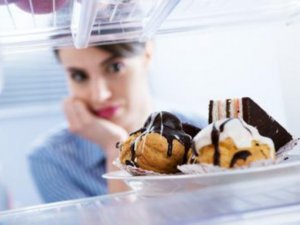12 Things NOT to Do in the Summer Heat
©2018 Health Realizations, Inc. Update
When the thermometer climbs over 80 degrees F, you can easily become fatigued just from being outside in the heat. Once the temperature rises above 90 degrees - a common occurrence during the dog days of summer in the United States - you're at a very real risk for sunstroke, heat cramps, heat exhaustion and heatstroke.
In terms of its potential to harm you, only the cold of winter poses a greater threat than the summer heat, according to the National Weather Service, so knowing how to keep cool is essential to your, and your family's safety.
This summer, here are the top things that you should AVOID doing to beat the summer heat.
- Don't let yourself get thirsty. Staying hydrated helps to keep your body cool. You should drink regularly throughout the day, even if you don't feel thirsty.
- Don't drink too much alcohol. It will cause your body to lose water.
- Don't eat heavy meals. Eating heavier foods, like protein, increases your metabolic heat production causing your body to lose more water. Stick with cool, light meals like salads, raw veggies and dip, crackers and cheese, or fruit and a little peanut butter. (Plus, eating cold meals means you don't have to heat up the house by using the oven.)
- Don't spend too much time in the sun. Not only are sunny areas hotter than shady ones, but if you get sunburned your body will have a harder time dissipating the heat.
- Don't stay in places without air conditioning. Air conditioning drastically reduces heat dangers, even if you're only in it periodically. If you don't have air conditioning at home, go to a public place (libraries, movie theaters, shopping malls) or cooling center that does. A cool bath or shower can also help (but electric fans will not prevent heat-related illness if the temperature is in the upper 90s or above).
- Don't exercise or do strenuous activities during the hottest part of the day. Your body can easily become overloaded and unable to function. Ideally, you should only do strenuous outdoor activities when the heat index is below 80 degrees.
- Don't leave children or pets in cars. On a hot, sunny day, temperatures inside a parked car can rise more than 30 degrees per minute -- even with open windows, according to the U.S. Humane Society. Leaving children or pets inside your vehicle can quickly become deadly.
- Don't push yourself. If you've been outside and begin to have muscle spasms, heavy sweating, fatigue, nausea or weakness, it's past time to take a break. When it's hot outside, you need to rest more often, take frequent cooling breaks (inside in air conditioning) and drink plenty of water.
- Don't drink lots of caffeine or sugary drinks. Like alcohol, these will cause your body to lose water.
- Don't wear dark-colored, tight or heavy clothes. Light-colored, loose-fitting clothing made of lightweight materials will help you stay cool.
- Don't use salt tablets (unless you've been instructed to do so by a physician).
- Don't leave the elderly or pets unattended. Be sure to check on elderly neighbors to make sure they are keeping cool, and provide plenty of cool water, air conditioning and shade for pets that will be left alone for the day.
Sources
National Weather Service





